180 East 163rd Street
by Sarah Dadouch and Mike Elsen-Rooney
The Bronx Ink has profiled buildings owned by Ved Parkash, who was until recently rated the worst landlord in New York by the Public Advocate’s office. The profiles form part of a wider investigation into housing conditions and tenant harassment in the Bronx. Find other buildings using the panel to the right.
The beige, World War II-era exterior of 180 East 163rd St. is well-preserved, and the hallways are freshly painted and clean.
But residents said the facade hides a multitude of underlying problems. Tenants complained of poorly-repaired water leaks, bad plumbing and malfunctioning smoke detectors. They described a constantly-broken elevator, and second-hand ovens and refrigerators that often break.
Ved Parkash purchased the building in 2007 from Peter Sinnot III, whom tenants lauded as a careful caretaker of the property.
“This building was his baby,” said Doribel Peralta, a resident of 17-years. “It was beautiful.” Peralta said she now has to lug a lamp with a long cord into the bathroom, which has not had a working light since December. She notified the landlord at the time and filled out a form she was given in August. The light is still out.
Mercedes Rolleri used to live in the building but left in August. She said she faced a string of issues during her five years in the building. She described how her leg was deeply cut when it was scratched on a piece of old paint that the landlord had promised to clean up. “I’d rather be out on the street,” she said. Rolleri is staying at a friend’s house for the time being.
Conditions in the building inspired some tenants to hold meetings in the lobby. Luis Diaz, a tenant for 20 years, was working from home when he noticed a flyer in the building from Community Action for Safe Apartments, a community organizing group known informally as CASA.
Diaz is shy by nature. He mostly kept to himself and had never met many of his neighbors until last year, when he decided to help organize the residents.
“I took it upon myself,” Diaz said. Facing a rapidly decaying building and an unresponsive landlord, Diaz says he felt a responsibility to speak up – not just for himself but also for those less comfortable speaking English or using computers.
Since then, Diaz has helped organize five tenant meetings in the lobby of the building. Those meetings culminated in a face-to-face with Parkash himself in July, at which representatives of Parkash’s Bronx buildings presented the landlord with a set of demands.
In the months since meeting with Parkash, Diaz has noticed a shift in how complaints are received. “Before we started organizing, he never answered phone calls,” Diaz said. “Now he’s at least picking up.”
But residents said many of the repairs are surface level and do not address the underlying decay in a building more than 70 years old. Workers repaired water damage to Diaz’s kitchen ceiling three months ago, and already the tell-tale bubbles and discolored paint from water damage are returning. Parkash declined to comment on the allegations.
At a recent CASA meeting, attended by Public Advocate Letitia James, tenant representatives drafted another letter to Parkash to pressure the landlord to follow through on his July promises. At 180 East 163rd Street, residents were promised a new front door that securely closes and are still waiting. “If I don’t email every week, they don’t do anything,” said Diaz. “Sometimes I just want to give up.”
Despite tenants’ claims, the building’s super, Jose Santiago, insisted he does not receive a lot of complaints. “You got something going on in your apartment, you just talk to me,” he said. “You don’t tell me nothing, I don’t know what’s going on.” Like many of the tenants, he complained about the elevator, saying he calls a few times a week to report problems. He also said that refrigerators tend to work for less than a year, and that it would make more sense if the landlord bought new ones for the apartments.
But Santiago said his responsibility ends at relaying the problems tenants have reported to a building manager. Though he does not continue tracking these repairs, he said he usually sees contractors responding within days.
Savitri Poliah began coming to the building last year to visit her disabled cousin. She quickly noticed that her cousin was losing food because of a broken refrigerator, and soon discovered that his kitchen cabinets were crumbling and infested with worms.
She began documenting the problems and complaining to the landlord. “With all the emails and pictures I sent, they had to do something,” she said. But when the new refrigerator arrived it was already heavily used. Poliah considers it a short-term solution.
Residents see evidence of change in the building as a whole, including a fresh paint job in the lobby and repairs to the bricks on the front walkway. “It was ugly,” said long-time resident Antoninio Anchunda, “but they’re making it better little by little.”
Still others believe the changes would not have happened without pressure from the tenants. Nothing would have happened, Poliah said, “if I didn’t complain and threaten him.”

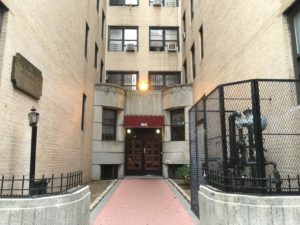
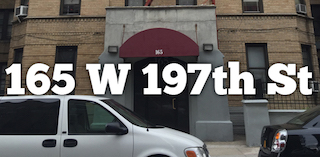 Christiana Barkley and Yuxiao Gao
Christiana Barkley and Yuxiao Gao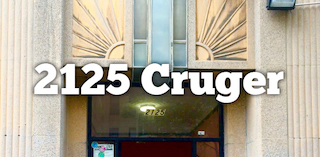 Corinna Burford and Taylor Hess
Corinna Burford and Taylor Hess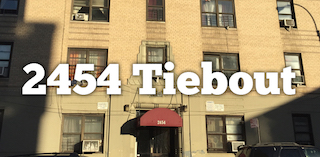 Erin Galloway and Alejandra Ibarra
Erin Galloway and Alejandra Ibarra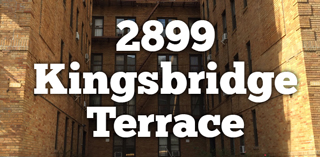 Erin Galloway and Alejandra Ibarra
Erin Galloway and Alejandra Ibarra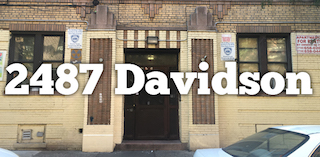 Jon Allsop
Jon Allsop Majlie de Puy Kamp
Majlie de Puy Kamp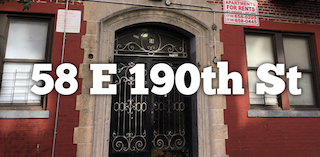 Micah Hauser
Micah Hauser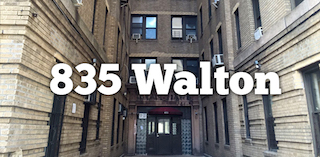 Rebecca Schuetz and Ruinan Zhang
Rebecca Schuetz and Ruinan Zhang Sarah Blaskey and Alejandra Ibarra
Sarah Blaskey and Alejandra Ibarra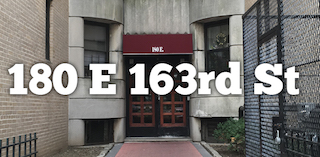 Sarah Dadouch and Mike Elsen-Rooney
Sarah Dadouch and Mike Elsen-Rooney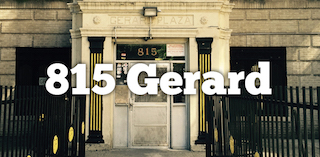 Shibani Gokhale
Shibani Gokhale